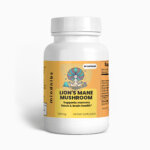
“Chronic Fatigue Syndrome: Can Supplements Provide an Energy Boost?”
Chronic fatigue syndrome (CFS), also known as myalgic encephalomyelitis, is a complex and debilitating condition that affects millions of people worldwide. The hallmark symptom of CFS is severe and persistent fatigue that is not alleviated by rest or sleep. While the exact causes of CFS are not fully understood, many experts agree that nutritional deficiencies and metabolic imbalances may play a role in the development and progression of this condition. In this article, we’ll explore the potential benefits of supplements for CFS patients and how they can help provide an energy boost that may improve quality of life and daily functioning. Whether you’re living with CFS or simply interested in natural ways to boost energy and vitality, keep reading to learn more about the role of supplements in managing chronic fatigue syndrome.
1. Understanding Chronic Fatigue Syndrome: Symptoms and Causes
Chronic Fatigue Syndrome (CFS), also known as Myalgic Encephalomyelitis (ME), is a debilitating condition that affects around 1 million people in the United States alone. While the exact cause of CFS is still unknown, studies suggest that it may be caused by a combination of factors such as genetics, viral infections, and immune system dysfunction.
One of the main symptoms of CFS is persistent fatigue that cannot be explained by any other medical condition. This fatigue can be severe and often limits a person’s ability to perform daily activities. Other symptoms include headaches, joint pain, muscle weakness, and memory problems.
It is important to note that CFS is not a psychological condition nor is it a figment of a person’s imagination. It is a real and serious illness that can significantly impact a person’s life. It is crucial to seek medical attention if you are experiencing the symptoms of CFS to receive a proper diagnosis and treatment plan.
2. The Limitations of Traditional Treatment Methods for Chronic Fatigue Syndrome
Since chronic fatigue syndrome is a relatively unknown and often misunderstood illness, traditional treatment methods are limited in their effectiveness. Here are some of the main reasons why:
- One-size-fits-all approach: Many traditional treatment methods take a generalized approach to chronic fatigue syndrome, assuming that one treatment plan will work for all patients. However, since the underlying causes of the illness vary from person to person, this approach often fails to provide the specialized attention that each patient requires.
- Inadequate testing: Many traditional treatment methods rely on tests that may not be sensitive enough to detect the various factors contributing to a patient’s chronic fatigue syndrome. This can result in a lack of diagnosis or an inaccurate diagnosis, which can severely impede the effectiveness of any treatment plan.
- Focus on symptoms, not causes: Traditional treatment methods often focus on alleviating the symptoms of chronic fatigue syndrome rather than addressing the root causes of the illness. While this approach may provide temporary relief, it does not offer a long-term solution for many patients.
Despite these limitations, there are alternative and complementary treatment methods that have shown promise in managing chronic fatigue syndrome. These include:
- Functional medicine: This approach takes into account a patient’s specific genetics, environment, and lifestyle to create an individualized treatment plan that targets the underlying causes of chronic fatigue syndrome.
- Mind-body therapies: Techniques such as meditation, yoga, and acupuncture have been shown to reduce stress and improve overall wellness, which can help alleviate the symptoms of chronic fatigue syndrome.
- Dietary changes: Making dietary changes such as reducing sugar intake, increasing antioxidant-rich foods, and avoiding food sensitivities can help support a healthy immune system and reduce inflammation, two factors that are often associated with chronic fatigue syndrome.
In conclusion, while traditional treatment methods for chronic fatigue syndrome can be limited in their effectiveness, alternative and complementary treatment methods offer hope for those living with this complex illness. By taking a personalized approach that targets the root causes of chronic fatigue syndrome, patients can achieve long-term relief and a higher quality of life.
3. Can Supplements Provide Relief for Chronic Fatigue Syndrome?
Please note that chronic fatigue syndrome (CFS) is a complex and poorly understood condition that can be difficult to treat. However, there is promising research that suggests supplements may help improve some of the symptoms associated with CFS. Here are some of the supplements that have shown promise:
- Coenzyme Q10 (CoQ10): CoQ10 is a powerful antioxidant that plays a crucial role in energy production. Several studies have suggested that supplementing with CoQ10 may improve fatigue and other symptoms associated with CFS.
- Magnesium: Magnesium is a mineral that is essential for many bodily functions, including energy metabolism. Some research has suggested that people with CFS may have lower levels of magnesium, and supplementing with magnesium may help improve symptoms such as fatigue and muscle pain.
- Vitamin B12: Vitamin B12 is important for energy metabolism and nerve function. Some people with CFS may have low levels of vitamin B12, and supplementing with this vitamin may help improve energy levels and reduce fatigue.
It’s important to note that while supplements may be helpful for some people with CFS, they are not a cure for the condition. If you are considering taking supplements to help manage your symptoms, it’s important to speak with your healthcare provider first. They can help you determine which supplements may be most beneficial for your individual needs, and can monitor your progress to ensure that you are getting the most benefit from them.
In conclusion, while there is still much that is unknown about chronic fatigue syndrome, supplements may offer some relief for those who struggle with its symptoms. CoQ10, magnesium, and vitamin B12 are just a few of the supplements that have shown promise in improving fatigue and other symptoms associated with CFS. If you are considering taking supplements to help manage your symptoms, it’s important to speak with your healthcare provider first to ensure that you are taking the right supplements in the right doses for your unique situation.
4. The Benefits of Vitamins and Minerals in Combating Fatigue
Fatigue is a common problem that people face in their daily lives. It can be caused by numerous factors including lack of sleep, stress, dehydration, and poor nutrition. One of the main ways to combat fatigue is by ensuring that your body is receiving the right vitamins and minerals. Here are some benefits of vitamins and minerals in combating fatigue:
- Vitamin B12: This vitamin plays a vital role in red blood cell formation and energy production. It can be found in meat, fish, and dairy products. If you are a vegetarian or vegan, you can take a B12 supplement to ensure that you are getting enough of this important vitamin.
- Magnesium: This mineral helps with the production of energy in the body and can improve sleep quality. Foods that are rich in magnesium include almonds, spinach, and avocado.
- Vitamin C: This vitamin is essential for iron absorption, which is necessary for energy production. It can also help reduce oxidative stress and improve immune function. Citrus fruits, berries, and broccoli are all high in vitamin C.
By incorporating these vitamins and minerals into your diet, you can help combat fatigue and improve your overall energy levels. It’s important to remember that a balanced diet and adequate sleep are also crucial in maintaining good health and preventing fatigue.

5. Herbal Supplements that May Boost Energy and Reduce Fatigue
Herbal supplements have been used for centuries to treat various health conditions, including fatigue, lack of energy, and stress. Here are some of the most effective botanicals that science has proven can increase energy levels and decrease fatigue:
– Ashwagandha: This adaptogenic herb has been shown to improve stamina, reduce stress and anxiety, and increase energy levels in people with chronic fatigue syndrome. It also helps balance cortisol levels, the hormone that regulates stress.
– Ginseng: This well-known herb is believed to enhance physical and mental performance, reduce fatigue, and improve mood. Studies have shown that ginseng can improve cognitive function, attention span, and reaction time.
– Rhodiola Rosea: This herb has been used for thousands of years to increase endurance, improve cognitive function, and reduce fatigue. It works by boosting the body’s ability to use oxygen, which leads to more efficient energy production.
Other herbs that may boost energy and reduce fatigue include maca, holy basil, and cordyceps. Before taking any herbal supplement, it’s important to speak to your healthcare provider to ensure it’s safe for you. Additionally, make sure to purchase supplements from reputable brands and adhere to the recommended dosages.
By incorporating these herbal supplements into your daily routine, you may be able to increase your energy levels and reduce feelings of fatigue. Whether you’re a student, athlete, or someone trying to improve your overall well-being, consider adding these botanical remedies to your health regimen and feel the difference!
6. Potential Risks and Side Effects of Supplement Use for Chronic Fatigue Syndrome
When it comes to treating chronic fatigue syndrome, many people turn to supplements as a way to alleviate their symptoms. While some supplements may be helpful, it’s important to remember that they are not a cure-all and can come with potential risks and side effects. Here are some of the things to be aware of:
- Interactions with medication: Some supplements may interact with prescription medication, leading to potentially dangerous side effects. It’s important to talk to your doctor before starting any new supplement regimen if you are taking other medications.
- Allergic reactions: Some supplements may contain ingredients that could trigger an allergic reaction in some people. If you have a history of allergies, be sure to read supplement labels carefully and consider consulting an allergist before trying anything new.
- Overdose: Overdosing on supplements is a possibility, especially when taking high doses or combining multiple supplements at once. This can lead to serious health problems, so it’s important to always follow recommended dosages and consult with a healthcare professional if you have any concerns.
Remember, supplements can be a helpful addition to your chronic fatigue syndrome treatment plan, but they should never be considered a replacement for prescribed medication or other therapies. To minimize any potential risks and side effects, always talk to your doctor before starting a new supplement regimen, and be sure to read labels carefully to avoid any possible allergic reactions or overdose.
7. Making an Informed Decision: Choosing the Right Supplements for You
When it comes to enhancing your health and wellbeing, taking supplements can be a great way to support your needs. But with so many different options available on the market, it can be difficult to determine which one is right for you. Fortunately, by doing your research and making an informed decision, you can select the perfect supplement to suit your unique needs.
Consider Your Goals and Needs
The first step to choosing the right supplement is to think about your health goals and needs. Are you looking to improve your physical performance, boost your immune system, or simply maintain overall health and wellness? Once you have a clear idea of what you want to achieve, you can start to explore the different supplements available and assess how they can help you reach your goal.
It’s also important to be aware of any particular health concerns or conditions you may have, such as allergies or nutrient deficiencies. When browsing supplements, look for those that explicitly address your specific needs to ensure you’re getting the best possible benefits.
Research Brands and Ingredients
When selecting a supplement, it’s important to choose a reputable brand that uses high-quality ingredients. Look for companies that have a proven track record and third-party certifications, such as Good Manufacturing Practices (GMP) certification. These certifications ensure that the product you’re purchasing has been thoroughly tested and meets industry standards.
In addition to researching brands, it’s also important to investigate the ingredients in the supplements you’re considering. Check the label and do some research to learn about the benefits and potential side effects of each ingredient. By doing so, you can make an informed decision and choose a supplement that meets your needs while minimizing any negative side effects.
As you can see, there is much evidence to support the use of supplements to help those with Chronic Fatigue Syndrome find an energy boost. While it is not a cure-all treatment, supplements offer an excellent opportunity for those struggling with CFS to improve how they are feeling. Whatever path you choose to take in dealing with Chronic Fatigue Syndrome, make sure to speak with your doctor to ensure that any supplements you choose are safe for you to use.

























